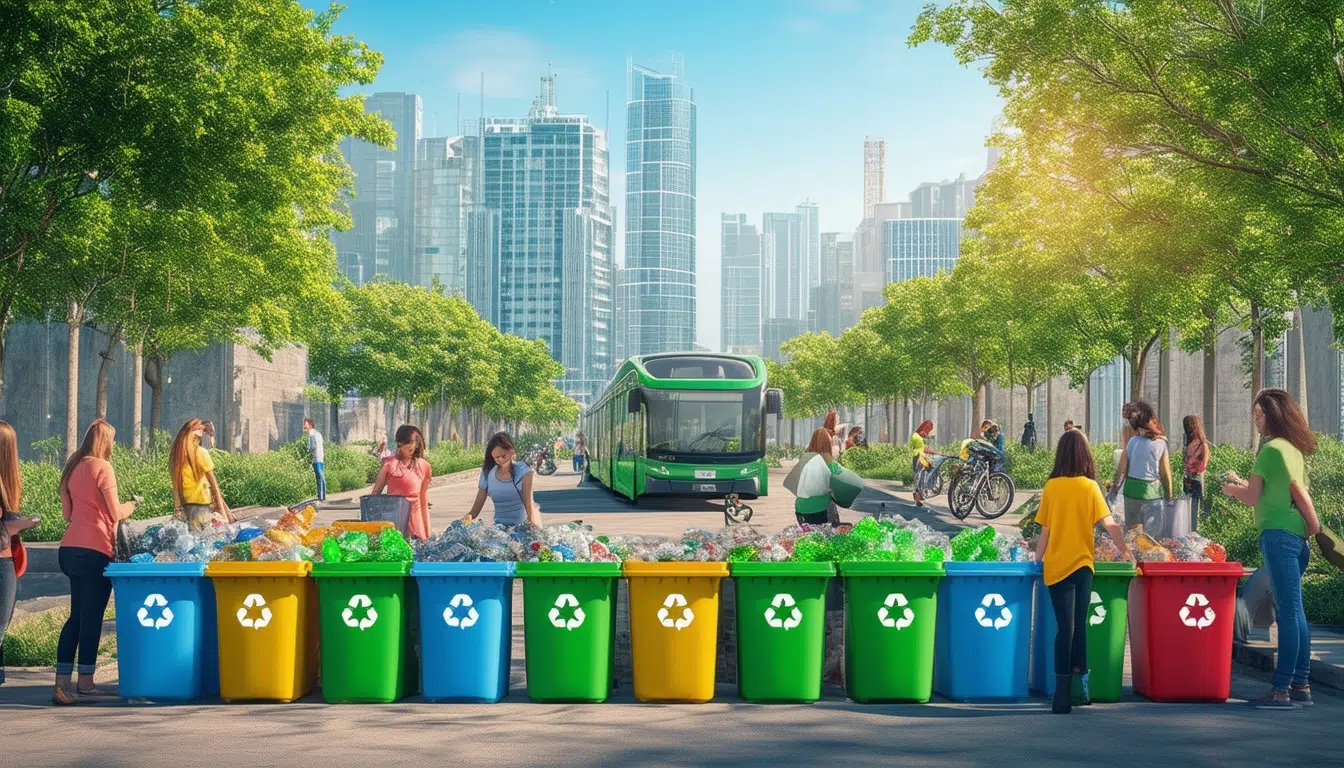Reccycling and fuel savings: a sustainable strategy

The recycling and fuel savings are two essential components in the pursuit of a more sustainable future. By implementing recycling practices, not only is the amount of waste in the environment reduced, but a significant energy savings is also achieved. Additionally, optimizing resource use and adopting technologies that favor fuel savings contribute to reducing the carbon footprint. These strategies are key to advancing towards a circular and responsible economy that benefits both businesses and society as a whole.
In an increasingly sustainability-conscious world, the relationship between recycling and fuel savings becomes a crucial strategy. This article will explore how implementing recycling practices can lead to more efficient resource use and a reduction in energy consumption, thereby fostering a more responsible and sustainable lifestyle.
Importance of Recycling in Sustainability
Recycling is one of the most effective practices for reducing waste generation. By recycling, valuable materials are prevented from ending up in landfills, contributing to reducing greenhouse gas emissions. The reuse of recycled materials in production not only saves energy but also reduces the need to extract new resources, which are fuel-intensive.
How Recycling Helps Save Energy
When an aluminum can is recycled, up to 95% of the energy required to produce it from virgin raw materials can be saved. This energy savings is vital in the fight against climate change, as it means less fossil fuel is being used in the production process. Lower energy consumption equals less demand for fuel, which contributes to creating a healthier environment.
Recycling Strategies in Companies
Companies that adopt recycling practices not only reduce their environmental footprint but can also benefit economically by lowering production costs. Integrating a recycling system within corporate culture fosters a circular economy, where products and materials are designed to be reused and recycled. This, in turn, promotes economic sustainability by reducing reliance on additional resources.
Green Logistics and Its Impact on Fuel Savings
Green logistics focuses on optimizing transport routes and efficiently managing resources. By reducing vehicle travel distance and maintaining the fleet in good condition, significant fuel consumption savings can be achieved. Efficient planning that incorporates recycling and the reuse of materials can also reduce transportation time and associated costs.
Innovative Examples of Sustainability
There are notable initiatives where recycling and fuel savings go hand in hand. For example, students in Puebla have developed an innovative biodiesel from coconut oil, demonstrating how creativity can lead to sustainable alternatives. Initiatives like these show that innovation can be a driver for sustainability.
The Path to a More Sustainable Future
As we move towards a more sustainable future, it is essential to adopt strategies such as recycling and optimizing fuel use. Promoting education and awareness about the importance of these practices is key to motivating the community to take action. Transforming our habits will not only benefit the environment but may also result in significant savings at the business and household levels.
Establishing Circularity as a Goal
Integrating circularity within sustainability strategies ensures that all processes are aligned with reducing consumption and saving energy. In this sense, recycling is not just an option but a necessity to ensure a healthy planet and resources available for future generations. Businesses and individuals must work together to maximize the positive impact of recycling and the efficient use of resources through sustainable logistics.
Individual Actions Towards Sustainability
Each one of us can make a difference by adopting recycling practices at home and at work. Proper waste separation, donating unwanted items, and reducing the use of disposable plastics are some of the actions that can contribute to energy and resource savings. By fostering these habits, a culture of sustainability that benefits the entire community is promoted.
In summary, recycling and fuel savings are fundamental pillars of a sustainable strategy. Through the implementation of responsible practices and the promotion of circularity, it is possible to move towards a greener and more efficient future.
Recycling has become a fundamental tool for creating a more sustainable future. By recycling, we not only reduce the amount of waste we generate but also promote the reuse of materials, decreasing the demand for new resources. This process not only helps preserve the environment but also contributes to saving energy and resources, a crucial aspect in the fight against climate change.
One of the most effective ways to address fuel savings is through optimizing logistics. Planning transport routes efficiently can significantly reduce fuel consumption, resulting in a decrease in greenhouse gas emissions. At the same time, a fleet maintained in optimal conditions maximizes its performance, thereby minimizing the carbon footprint of companies.
The use of alternative fuels also plays an essential role in this strategy. By adopting cleaner and renewable energy sources, companies can not only reduce their dependence on fossil fuels but also contribute to a more sustainable energy future. This is especially key considering the growing concerns about environmental pollution.
Combining recycling with energy-saving practices in industry and homes is an effective way to achieve a significant impact. By using recycled products, less energy is required for production, resulting in considerable savings not only in operational costs but also in energy consumption. In this context, recycling should not be viewed solely as a social duty but as a viable economic and environmental strategy.





